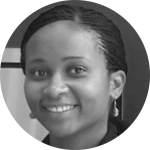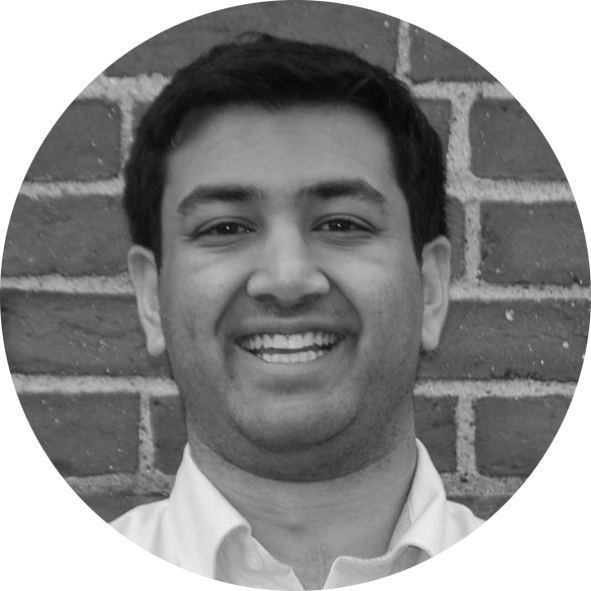Three People. Two Questions. One Degree. – Focus on Business for Impact
Our Master of International Business alumni step out of Fletcher into fascinating careers across sectors and geographies. Our new series, “Three People. Two Questions. One Degree.,” features MIB alumni working in a common industry who bring a unique Fletcher perspective to their organizations. Through a pair of questions, they look back at their time at Fletcher and forward to the future:
THREE PEOPLE
 Zandile Lambu ‘17 Circle Compliance Specialist Boston, MA |  Jesse Simmons ‘16 Align Impact Investment Analyst Santa Monica, CA |  Ammar Karimjee '17 One Acre Fund Impact Ventures Associate Tanzania |
TWO QUESTIONS
- What did you learn at Fletcher that is most relevant to your career today?
- What idea/innovation gives you the most hope for helping those at the bottom of the pyramid?
Zandile Lambu ‘17 – Circle
While at Fletcher, most of my classes required group assignments. These projects required a lot of team engagement and managing group dynamics in order to deliver. In six months working at a fast-growing FinTech startup with teams on three continents, all that Fletcher experience has come in handy. Fletcher teaches you to be effective working with diverse, multi-cultural, global teams. Thanks to the group work, I can better leverage people’s skills, listen to diverse opinions, and more importantly, better understand different cultures and how they shape the workplace.
Through this work, I am excited by the potential for that the payments industry to help those at the bottom of the pyramid. With continuing fragmentation across the industry and a large number of startups entering the market, people who were unable to access traditional financial services are now getting connected. These startups are providing services that required lots of paperwork in traditional banks (transfers, remittances, insurance, etc.) with in far simpler ways and most offer the same services as banks at a lower cost, or even for free, lowering the barrier to entry.
Jesse Simmons ’16 – Align Impact
At Fletcher, private equity with Professor Pat Schena as well as a fundamental course like Corporate Finance gave me the baseline of how money moves through a business or through a fund, which are knowledge and skills you need to work in impact investing. Field Studies in Global Consulting with Rusty Tunnard helped me learn how to structure analysis and present in concise and effective ways. Beyond the classroom, the MIINT Program through the Fletcher Social Investment Group (FSIG) was a great vehicle for hands-on training in venture capital and forced us to do due diligence and actually look at companies, navigate uncertainty, and stand in the shoes of an investor.
It’s important to recognize that finance is not scary nor hard, and neither is math – at least at the level you need for impact investing. Get through corporate finance and private equity and you’ll be literate. Impact investing is many things, and embrace that fact. Embrace that there are so many different flavors of the space for all different types of skillsets, which I think is really relevant at Fletcher.
At a fundamental level, the idea of impact investing itself is what gives me hope for helping those at the bottom of the pyramid. By being conscious about what you’re generating with your investment capital and understanding the returns continuum, you can look at capital and impact across a spectrum of potential returns and a spectrum of impact that can be generated with an investment and how those are related. Being intentional and thoughtful about what can be created with investment and what can be avoided presents fantastic opportunities. The idea of multi-trillion-dollar capital markets being used for something in addition to growth of capital gives me great hope.
Ammar Karimjee ‘17 – One Acre Fund
I am fortunate to be in a position at One Acre Fund Tanzania that directly capitalizes on my two areas of study at Fletcher. I lead the operations team for our trial program, which directly employs the finance and business fields of study, while I also lead the impact measurement team, which uses my skills in development economics.
However, the most important thing I learned at Fletcher that I apply in my career are the soft skills of working with people from different cultures. Through group projects and informal interactions, Fletcher prepares you for this in a way that I would not have been otherwise. Working across cultures is tremendously hard, especially when there are language barriers and implicit power dynamics at play. Without this experience at Fletcher, I would not have had the mindset or tools to be equipped to be a manager in a foreign country.
For me in the field, what is both inspiring as well as frustrating is that most of the tools people at the base of the pyramid need to break out of cyclical poverty already exist. In my eyes, the challenge is not one of new ideas, but one of successfully delivering existing ideas to the communities that need them. That makes the goal of helping people more attainable than if you didn’t have a starting point, and, for that reason, this phenomenon gives me tremendous hope. To give one example: at One Acre Fund, we are simply delivering existing agricultural inputs and training on existing techniques to a group of people that previously did not have access to them.
